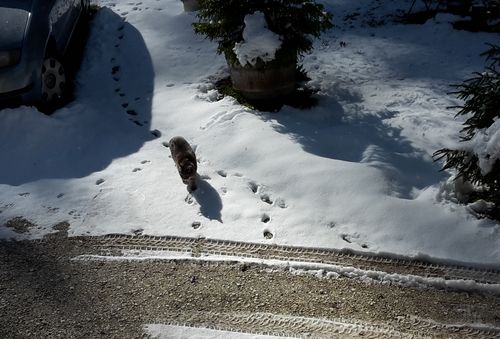
This Thursday morning it was quite cold. I went round my garden, walking in the little snow that’s left. As this afternoon the sun is shining bright and warm, there’ll be even less left tomorrow.
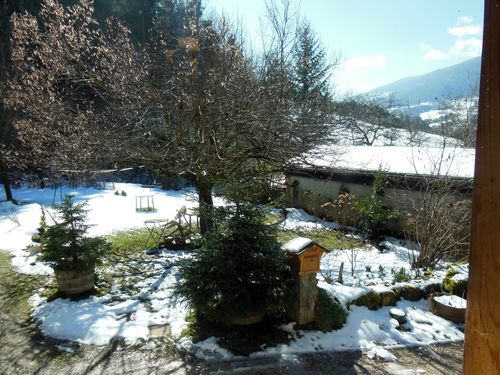
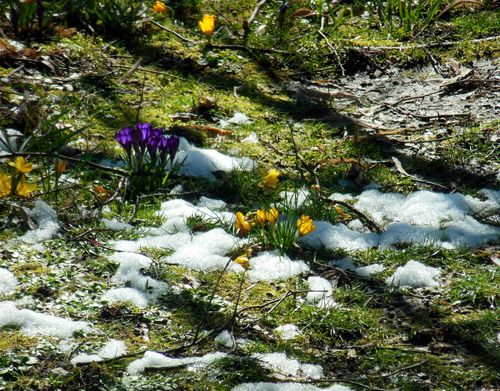


This Thursday morning it was quite cold. I went round my garden, walking in the little snow that’s left. As this afternoon the sun is shining bright and warm, there’ll be even less left tomorrow.


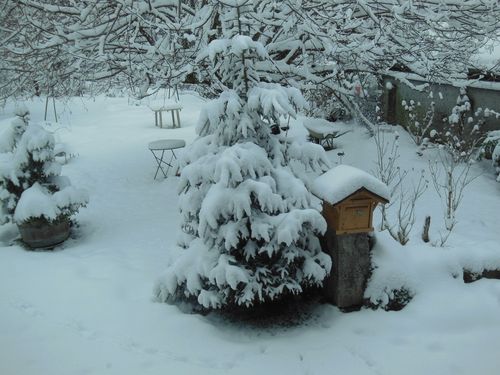
This morning – Tuesday 8th March 2016
My Master says there seems to be no exact equivalent of the French “giboulées” in English. A “giboulée de mars” is a snow-fall that occurs in March. The quantity of snow can be quite important (10 to 25cm) but very often it melts before the end of the day.
In Savoie, old people would call these snow-falls “écappons” – dialect word for “chips of wood”. St-Joseph Day is on March 19th. Joseph was a carpenter and used to plane pieces of wood. When big flakes of snow fall on St-Joseph Day, they are supposed to be chips of wood, the byproduct of Joseph’s work.
![]() Trad. française plus bas
Trad. française plus bas
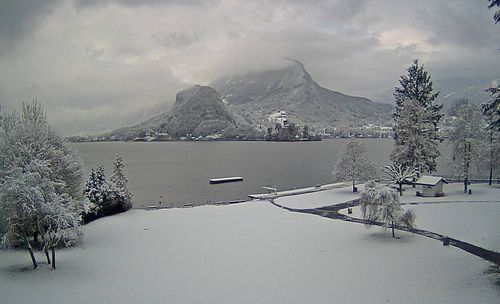
The Lake this morning
Webcam in Talloire http://www.talloires-lac-annecy.com/fluxwebcam/image.jpg?rand=6148
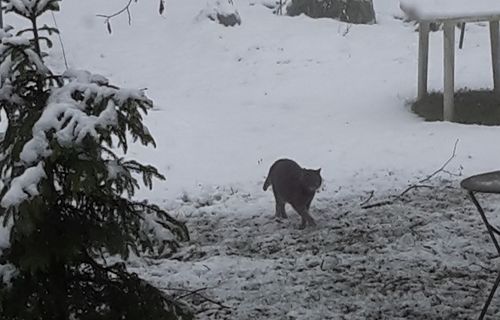
Yesterday morning, in my garden
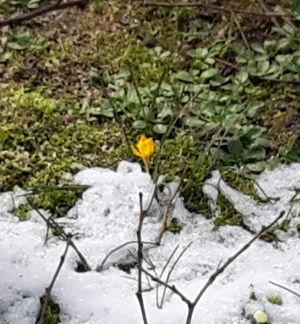
Yesterday afternoon…
![]() Mon Maître il dit qu’il n’y a pas d’exact équivalent de “giboulées” en anglais. Les “giboulées de mars” c’est des chutes de neige qui ont lieu en mars. La quantité peut être importante (10 à 25cm) mais le plus souvent elle fond très rapidement.
Mon Maître il dit qu’il n’y a pas d’exact équivalent de “giboulées” en anglais. Les “giboulées de mars” c’est des chutes de neige qui ont lieu en mars. La quantité peut être importante (10 à 25cm) mais le plus souvent elle fond très rapidement.
En Savoir, les anciens appellent souvent les “giboulées” les “écappons”, mot patois pour “copeaux de bois”. La St-joseph c’est le 19 mars. Joseph était charpentier et il rabotait des morceaux de bois. Quand de gros flocons de neige tombent le jour de la St-Joseph, ce sont les copeaux du travail de Joseph.